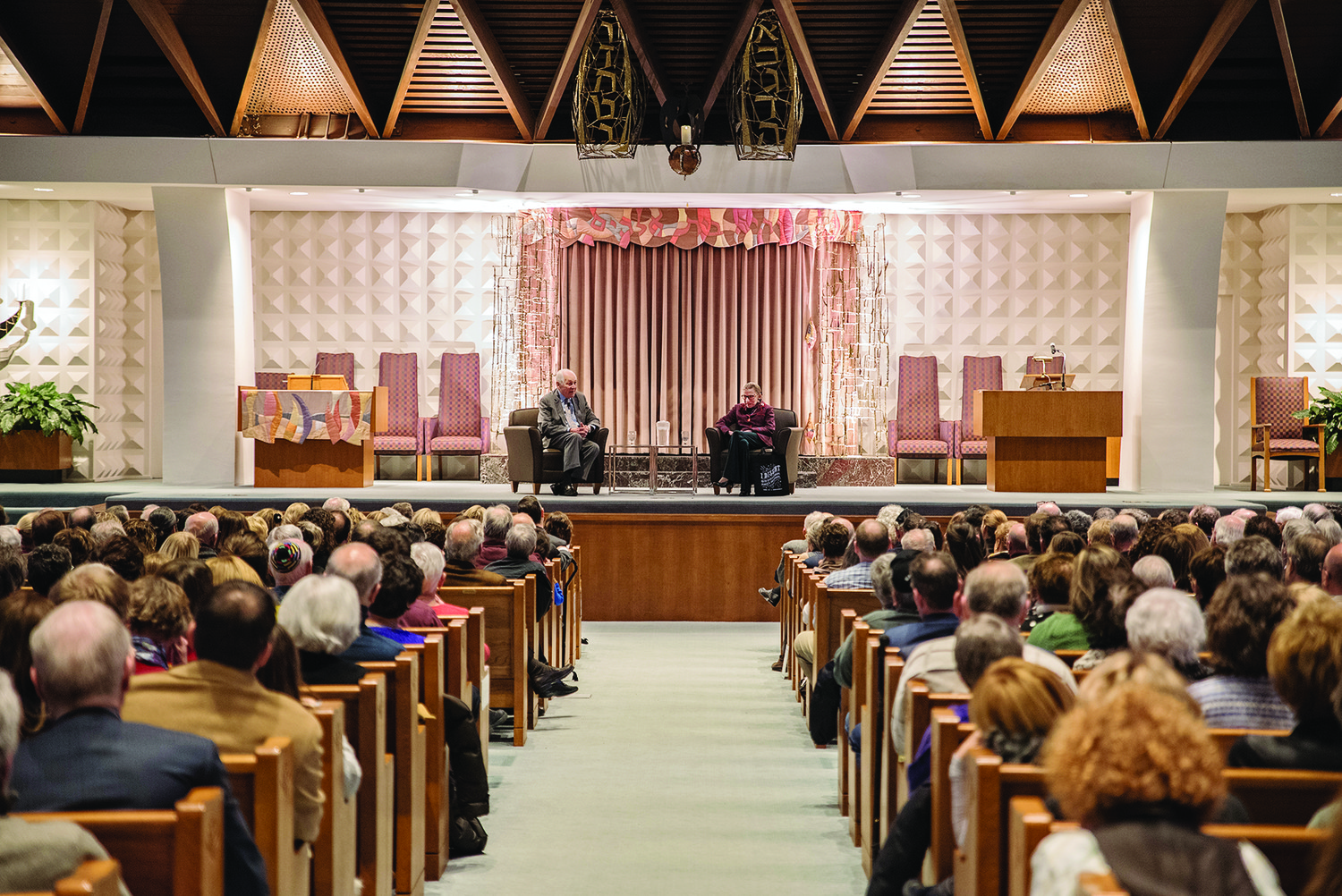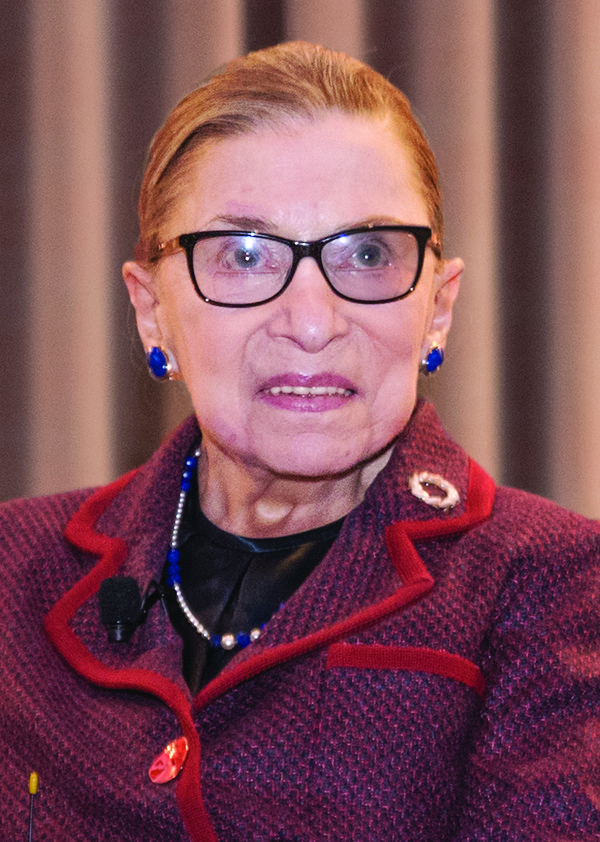Ginsburg delights audience
PROVIDENCE – The crowded room erupted in loud applause and cheers as Rabbi Leslie Y. Gutterman escorted Supreme Court Justice Ruth Bader Ginsburg down the center aisle of the sanctuary at Temple Beth-El on the East Side the evening of Jan. 30. The 1,300 people in attendance rose to their feet.
Ginsburg, who is on a speaking tour, had spent some time earlier in the day at the Roger Williams University School of Law, in Bristol. Now, the petite 84-year-old justice was at Beth-El for a public conversation with U.S. Appeals Court Senior Judge Bruce M. Selya.
Selya and Ginsburg have known each other since their days at Harvard Law School. Selya told a story of how years ago, Rabbi Gutterman asked him to see if then-newly appointed Supreme Court Justice Ginsburg would speak at Beth-El. During a subsequent conversation with Ginsburg, Selya asked her about the biggest difference between being a District Court judge and a Supreme Court judge. She opened a drawer and said, “I must have 200 invitations from synagogues now.” Selya said he decided not to ask her at that time.
On Tuesday, from the bimah, Selya asked questions that prompted Ginsburg to talk about various stages of her life and distinguished legal career, which has included teaching at Rutgers’ and Columbia University’s law schools and a stint on the U.S. Court of Appeals.
One subject not on the table: the event in Washington that evening – the State of the Union address, from which she was widely reported to be absent. To the audience, Ginsburg would only say that her visit was planned before the date was set. There was laughter all around.
On her life: growing up during World War II, “For Jews it was a very frightening time.”
On becoming a lawyer: at Cornell University, she developed a love of writing. She also watched lawyers during the McCarthy era stand up for people and advocate for their freedom to speak and write.
“That gave me the idea to be a lawyer,” Ginsburg said. “I could make conditions a little better for our society.”
On law school: she started at Harvard Law, while she had a young child, in a class of 500 that had only nine women. After her husband graduated from Harvard Law, they moved to New York City and she finished law school at Columbia. Years later she would get an honorary law degree from Harvard.
On fighting gender discrimination and women’s rights: from the quota system for women in college to unequal pay for the same job and unequal treatment in those jobs, Ginsburg said she has experienced and fought gender discrimination throughout her life. She told stories about being active in women’s rights issues in the courts in the 1960s, and, in 1972, the ACLU’s Women’s Rights Project started with Ginsburg as its director.
“Times were right for the Women’s Rights Project,” she said. “By the end of the decade, all explicit gender-based classifications were gone.”
On being Jewish on the court: The liberal justice was appointed to the Supreme Court by then President Bill Clinton. She was only the second woman on the court and the only Jewish person at that time. There had been five Jewish justices before her. Today there are three Jewish justices; Stephen Breyer and Elena Kagan are the two others.
On her friendship with other judges: Sandra Day O’Connor “told me just what I needed to know at the start” of her tenure on the court. O’Connor also offered support and advice during a bout with cancer in the late ’90s and was responsible for Ginsburg wearing gloves.
Although she “disagreed with much of what he said,” Ginsburg said she shared a love of opera with the late Justice Antonin Scalia and they critiqued each other’s writing.
Throughout the program, Ginsburg showed tremendous wit and knowledge and recall of cases and situations dating back to her law school days.
She said she hopes that today’s divided Congress can unite and move forward with a bipartisan spirit.
Selya drew applause and laughter when he mentioned Kate McKinnon’s portrayal on “Saturday Night Live” of Ginsburg as a vitamin-chugging workout fanatic determined to outlast this administration.
Rabbi Howard Voss-Altman of Temple Beth-El echoed the sentiment in closing the program by telling Ginsburg, “we hope you live to 120.”
FRAN OSTENDORF is the editor of The Jewish Voice.











